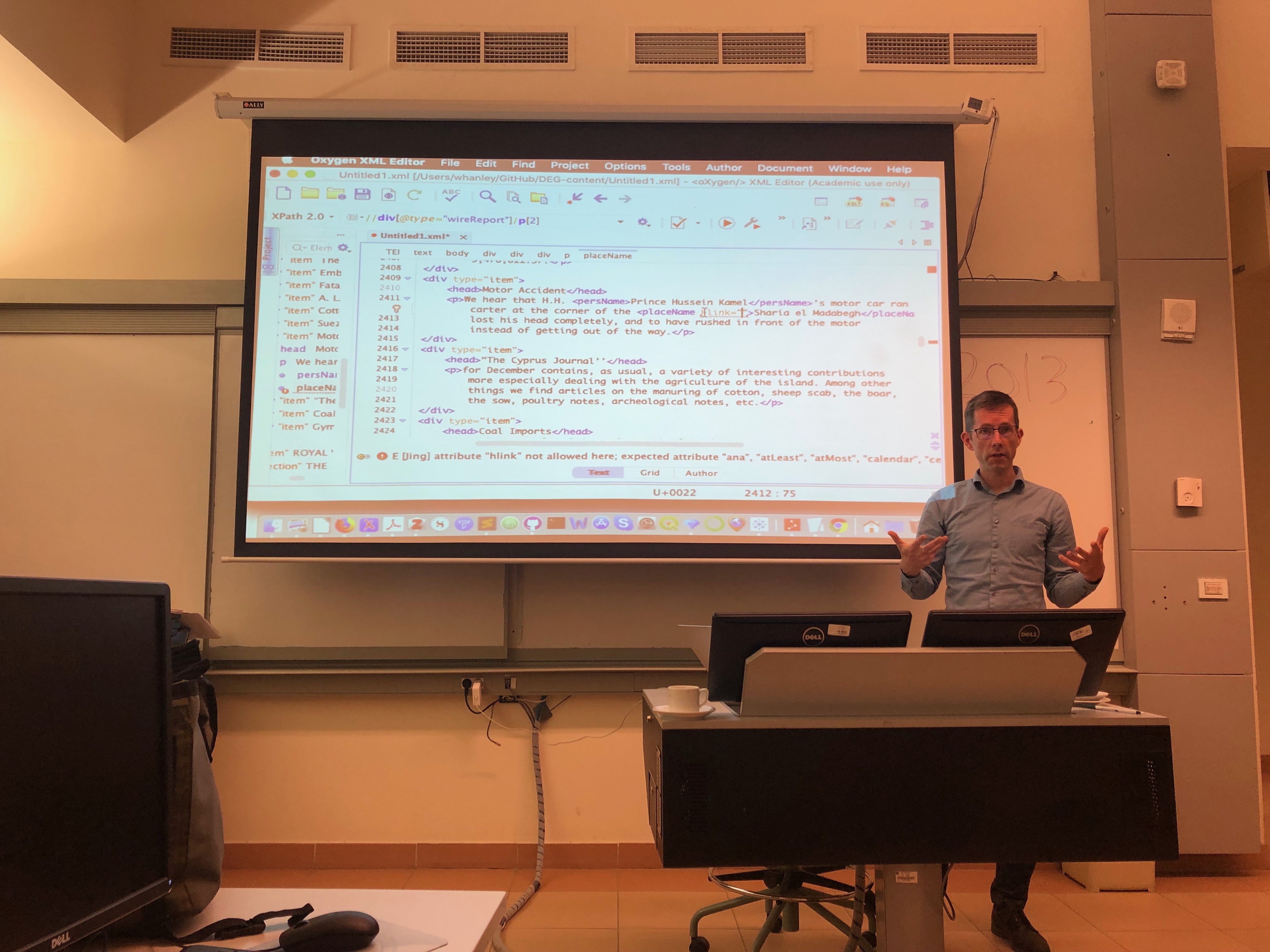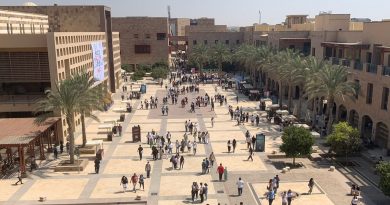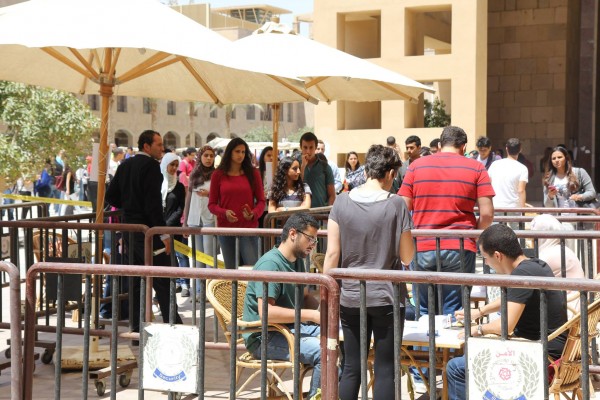Digitizing Egyptian Records to Bridge Cultures
By: Mariam Salah
@MaryamFSalah
Associate Professor at Florida State University Will Hanley says he is on a mission to digitize important historical records to be available on the internet.
In his hands-on workshop organized by the School of Humanities and Social Sciences on February 19, Hanley spoke of his efforts to digitize The Egyptian Gazette and the importance of preserving old texts.
The Egyptian Gazette is the oldest English-language newspaper in the Middle East. The newspaper began its publication in the 19th century, based initially in Alexandria, until later moving to Cairo.
“It [The Egyptian Gazette] offers multicultural knowledge. It offers different things for different people and I think that’s important in a history class,” added Hanley.
He said that the internet is a valuable utility because it allows people to ask questions about their own small curiosities.
“The more we are able to bring information that is not from Europe and America onto the internet, the better chance people have of finding more diverse answers,” Hanley added.
While digitizing The Egyptian Gazette is an important part of his focus, Hanley is also looking to empower students with other skills, such as coding.
“I’m trying to teach them a few things at once. If they like the coding part, they can learn that, if they like history, they can learn that,” said Hanley
As a history professor, Hanley explained that the process of digitizing The Egyptian Gazette is a chance for students overseas to see that the Middle East is not completely different; that like other regions of the world it has its pros and cons.
“This newspaper happened to be published in English and it gives some day-to-day stories. My main objective is to allow [students] to see that life is not that different in turn of the century Egypt. There’s sport, crimes, everyday events and boring things, just like an American newspaper,” explained Hanley.
Digitization is increasingly being used by academic and historical institutions. “The handwriting becomes faint and hundreds of years from now they might not be possible to decipher. If you digitize something, hopefully you have it forever,” said Hanan Kholoussy, Associate Professor at the department of history.
And preserving something “forever” facilitates continued research.
“This type of data enrichment allows a researcher to find the specific number of a certain commodity,” explained Hanley in the workshop.
As a result, Hanley was able to create many different graphs and visual representations of data from the digital database he created. Searches can be more specific using the XML code that the files are encoded in. This allows the researcher to access data as specific as the amount of cotton imported from Egypt in a particular year.
“It makes it available for researchers around the world. Teaching this at universities would create a bigger database of information, and the bigger the database is, the more useful it becomes,” said Bastian Still, a Post-Doctorate candidate who attended the lecture.
“Digitizing data is important. It is an aspiration for historians, novelists [and] even screenwriters to find tons of stories and information in a specified manner,” said Ahmed El Sayad, 24, a Middle East Studies student.



